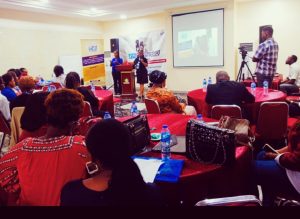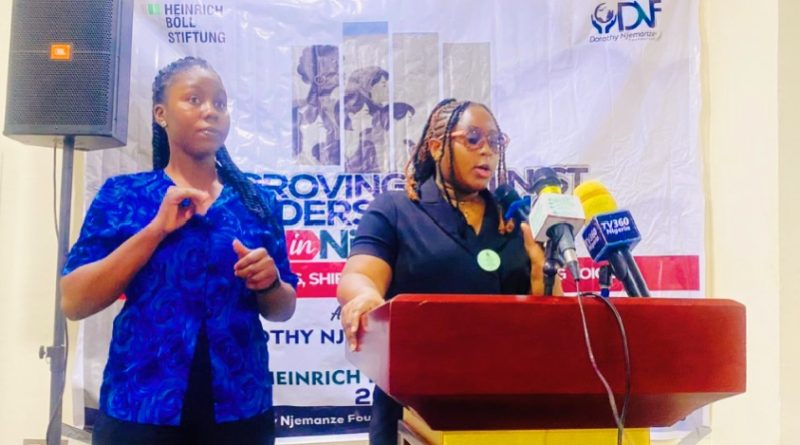Dorothy Njemanze Foundation Unveils Comprehensive Blueprint to Advance Inclusive Leadership and Gender Equality in Nigeria
Maryam Aminu
The Dorothy Njemanze Foundation (DNF), has issued a compelling call for inclusive leadership with the launch of its “Compendium of Sector-Specific Solutions for Inclusive Leadership in Nigeria.”
Unveiled at a press briefing attended by government representatives, CSOs, NGOs, and media yesterday in Abuja, the compendium developed in partnership with the Heinrich Böll Foundation examines structural barriers hindering the progress of women, girls, and persons with disabilities (PWDs) in Nigeria’s most vital sectors.
This publication advocates for policies that advance equitable representation, inclusive governance, and leadership opportunities for marginalized groups.
Founded by gender advocate Dorothy Njemanze, DNF champions gender democracy, equal rights, and support for survivors of sexual and gender-based violence (SGBV), in Nigeria.
Njemanze emphasized that the compendium was crafted through rigorous research, stakeholder consultations, and validation sessions, creating a roadmap to address the unique challenges facing marginalized populations.
“This compendium exposes the economic and social setbacks stemming from gender-based discrimination and exclusionary practices,” Njemanze said.
“With insights from government, civil society, and survivors, we aim to catalyze sector-wide reforms that empower women and PWDs to reach their full potential.”
The compendium highlights critical issues and proposes targeted solutions across key sectors including:Politics and Governance, Security, Education,Health,
Economic Inequality,
Additional Sectors – Sports, Media, and Housing.
The compendium offers a range of strategic recommendations for policy and practice, urging leaders to make gender equity a national priority.
Njemanze called for the full adoption and implemention of the National Gender Policy across government levels
DNF recommended the passing of the Gender Bills and enforcing affirmative action to ensure women’s representation in leadership roles.
They further called for strengthening legal protections for marginalized groups.
The compendium requested for an Increasing economic and educational resources for women and PWDs and embedding gender-sensitive governance practices across sectors.
Njemanze recommended enhancing partnerships with civil society for sustained advocacy and reform.
“We envision this compendium as a driving force for actionable reforms, spurring government and industry leaders to dismantle the barriers that hinder women and PWDs from achieving true equality and leadership,” Njemanze concluded.
The “Compendium of Sector-Specific Solutions for Inclusive Leadership in Nigeria” stands as both a reflection of Nigeria’s strides and a strategic guide for building a more inclusive, gender-democratic society.




